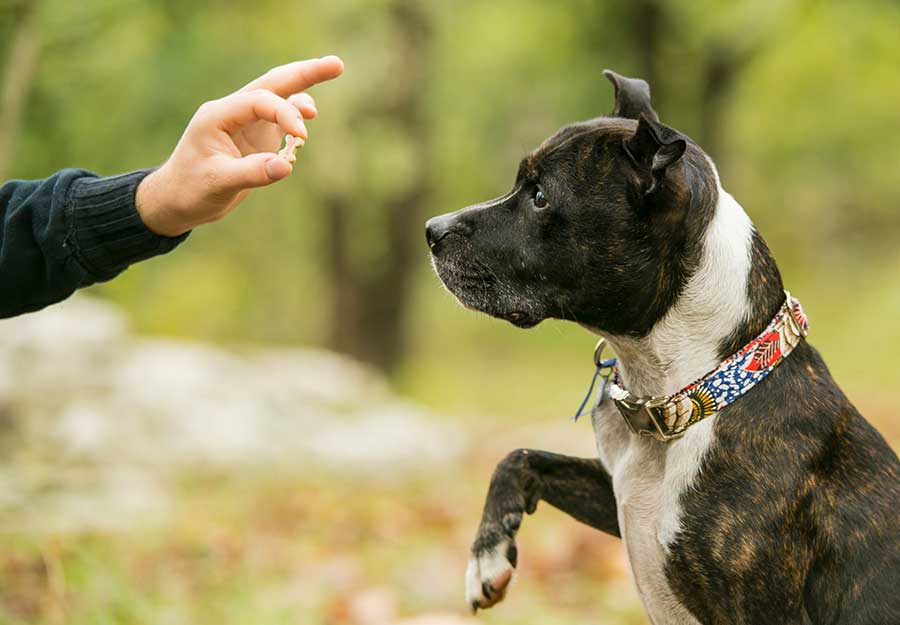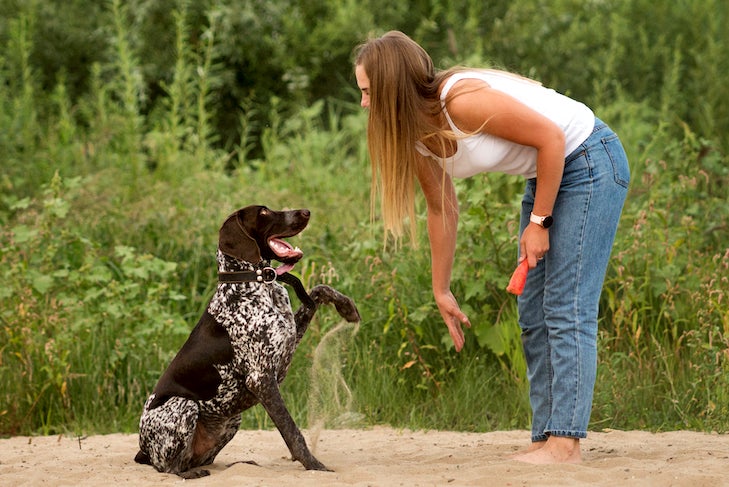Unlock Your Pet dog's Possible: Proven Canine Training Strategies for Success
Reliable pet dog training is a nuanced procedure that pivots on recognizing canine behavior and using clinically backed techniques. By integrating positive reinforcement, establishing clear commands, and focusing on socialization, pet dog owners can grow an effective partnership with their family pets.
Recognizing Pet Dog Behavior
Understanding canine habits is important for reliable training and cultivating a positive relationship between canines and their owners. A comprehensive grasp of canine body language, articulations, and social communications is crucial for recognizing their demands and emotions. Pet dogs connect primarily through non-verbal signs; for instance, a wagging tail might indicate enjoyment, while pinned ears can signify worry or entry.

Moreover, environmental elements play a considerable function fit a canine's habits. Modifications in routine, new surroundings, or the presence of unfamiliar people can bring about stress and anxiety or anxiousness in pet dogs. Acknowledging these triggers allows owners to mitigate damaging responses and develop proper training strategies.
Ultimately, a deep understanding of pet habits lays the foundation for successful training methods, boosting both habits and the overall bond between the pet and its owner. dog training charlotte nc. This understanding is crucial for promoting a well-adjusted, pleased canine companion
Favorable Reinforcement Strategies
Efficient training relies greatly on positive support methods, which have been revealed to produce substantial outcomes in shaping wanted habits in dogs. This method involves awarding a canine for exhibiting certain habits, therefore enhancing the likelihood that these behaviors will be repeated. Benefits can take numerous types, including treats, praise, toys, or play, depending on what encourages the individual pet.

It is vital to gradually terminate benefits as the canine learns the actions, transitioning to recurring reinforcement. This strategy keeps the actions in time while preventing dependency on constant incentives. By focusing on positive support, fitness instructors can cultivate a relying on relationship with their pets, promoting a healthy and balanced and cooperative training setting that enhances general obedience and performance.
Developing Constant Commands
A fundamental facet of successful dog training is the facility of consistent commands. Consistency in commands is crucial for efficient communication in between the fitness instructor and the canine. When commands are uniform, dogs discover to associate certain words with desired habits, which accelerates the training process and boosts read understanding.
To establish regular commands, it is vital that all household members utilize the very same terminology and motions. If one individual utilizes "sit" while an additional claims "sit down," it can create complication for the pet. Select clear, unique words for commands and guarantee every person involved in the pet dog's training sticks to these options.
In addition, repetition is essential. Enhance commands via constant practice, making sure that the pet obtains ample chances to respond properly. When a pet efficiently follows a command, immediate positive reinforcement needs to follow. This could be in the type of treats, praise, or playtime, solidifying the connection between the action and the command.
Lastly, hold your horses. Establishing regular commands takes time and initiative. With devotion and quality, you will certainly assist your canine establish a strong understanding of expectations, ultimately leading to a mannerly friend.
Socialization and Exposure
Socializing a dog is essential for cultivating a positive and well-adjusted companion. This process entails subjecting your canine to a variety of settings, people, and other pets to establish their social skills and flexibility. Early socializing, ideally in between the ages of three to fourteen weeks, is essential, as it lays the groundwork for a pet's future habits.
During socializing, objective to give favorable experiences in various settings, such as parks, active streets, and homes with various other animals. Introduce your pet dog to various stimulations, including sounds, views, and smells, making certain that each encounter is rewarding. This direct exposure helps minimize worry and anxiousness, leading the way for a much more resistant pet dog.
Involving in regulated group play sessions with other canines can additionally improve social abilities, educating your animal suitable communications and limits. Focusing on socializing will substantially add to your canine's total happiness and actions throughout their life.
Overcoming Common Educating Difficulties

An additional constant problem is disturbance. Pet dogs may have a hard time to focus in hectic or unfamiliar setups. Progressively desensitize your dog to diversions by beginning training in a peaceful setting and slowly introducing more stimulations as they come to be efficient (dog training charlotte). Favorable reinforcement techniques, such as treats and appreciation, can maintain motivation and focus.
In addition, behavior problems like jumping or too much barking can become irritating. Address these by educating alternative behaviors, such as sitting calmly when welcoming visitors. Uniformity and why not try this out persistence are critical; reinforce desired habits constantly and prevent scolding, which can result in confusion.
Lastly, identify that each canine is unique, and training timelines might vary. Tailor your approach to your pet's specific demands, and look for professional assistance if necessary. With willpower and the best strategies, overcoming these obstacles can bring about a well-trained, happy canine companion.
Conclusion
To conclude, opening a dog's possible demands a detailed method that integrates an understanding of canine behavior, the application of positive reinforcement techniques, and the establishment of regular commands. Early socialization and direct exposure to diverse settings even more enhance a pet dog's versatility and self-confidence. By attending to typical training difficulties with tailored strategies and perseverance, a unified and participating relationship in between dog and handler can be cultivated, inevitably resulting in a well-behaved friend qualified of growing in numerous scenarios.
Efficient pet training is a nuanced train dog to not bark at other dogs procedure that hinges on comprehending canine habits and using clinically backed strategies.Comprehending canine behavior is crucial for effective training and promoting a favorable partnership between canines and their owners.Efficient training relies greatly on favorable reinforcement techniques, which have been revealed to produce significant outcomes in shaping preferred habits in pets. When commands are consistent, dogs learn to connect details words with wanted habits, which speeds up the training process and enhances understanding.
In conclusion, unlocking a canine's potential demands a thorough technique that incorporates an understanding of canine actions, the application of favorable reinforcement techniques, and the facility of consistent commands.